Many of us have heard of space celebrities such as Tim Peake and Brian Cox writing about this topic, but – while books of that kind are included on this list – there are a wide range of great titles to be read in your search for an understanding of the Universe. Some of these will help amateur astronomers get to grips with the night sky, while others will bring heart-warming tales of the collaboration and community within the space industry.
We think it's a great collection of space and astronomy books, but if you think we've forgotten any please do let us know over on the Science Focus book club Facebook group. Or, take a look at our list of big, coffee table photography books about space.
For more reading recommendations and free samples of new and popular books, sign up to ourbook club newsletter below.
Looking for gift ideas? Check out our list of the best science and tech gifts.
The best books about space, astronomy and the Universe
Night Sky Almanac 2023: A Stargazer’s Guide
Royal Observatory Greenwich, Storm Dunlop, Wil Tirion and Collins Astronomy
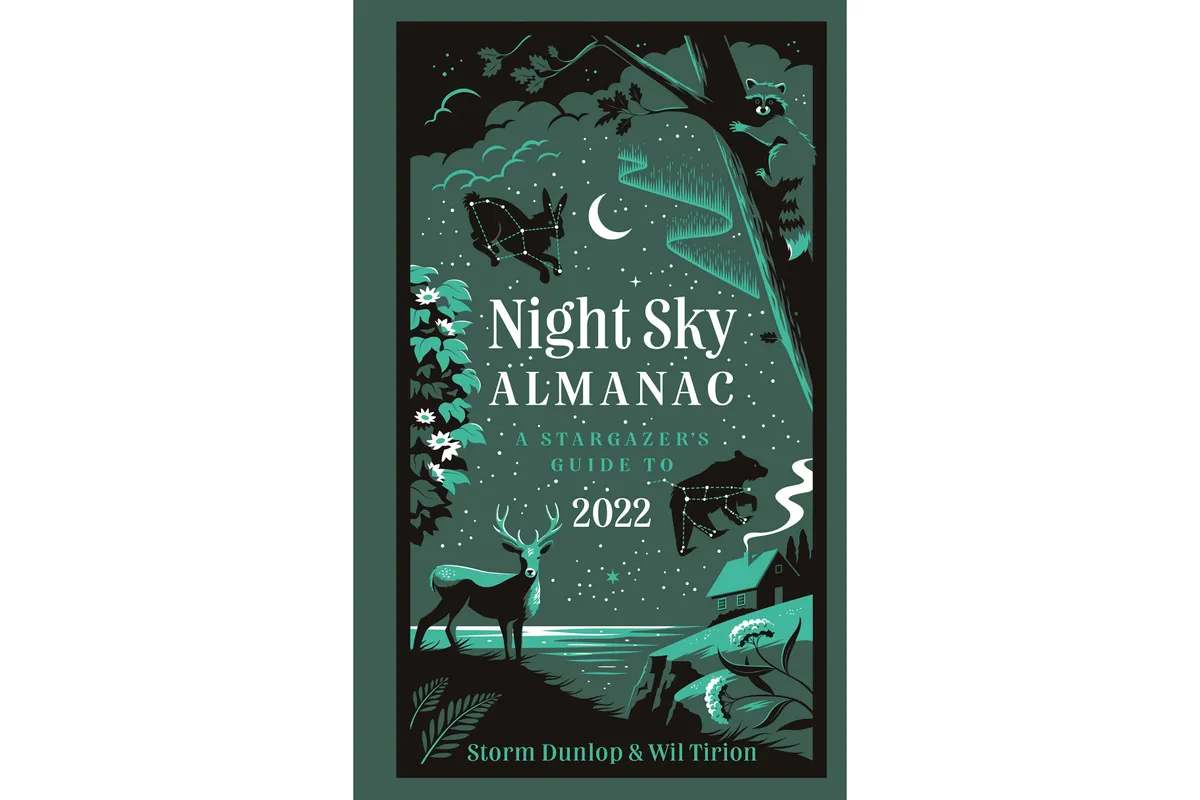
What better gift for an amateur astronomer than an answer to all of their queries in one, pocket-sized companion?
Detailed with facts, advice and key dates to look out and up for throughout the year, plus monthly calendars to reveal the delights of the night sky wherever you are. For fans of The Almanacseries or subscribers ofSky at Night magazine, this is an essential piece of kit.
Stories in the Stars: An Atlas of Constellations
Susanna Hislop and Hannah Waldron
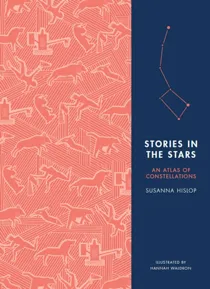
This book lists all 88 constellations by size, from Andromeda (the chained maiden) to Vulpecula (the little fox), each beautifully illustrated by artist Hannah Waldron, while Susanna Hislop’s accompanying text goes beyond the usual creation myths to include facts about legendary astronomers and more.
Stories in the Starsis both an imaginative and in-depth collection of human's encounters with the night sky.
Ask An Astronaut: My Guide to Life in Space
Tim Peake
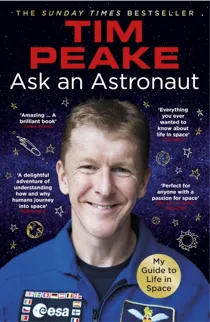
Who better to describe life in space than someone who’s walked the (space)walk? Peake pens answers to the public’s burning questions, revealing what space smells like, how he enjoyed a cosmic cuppa, and what it felt like to return to Earth.
Of course, his other books are all well worth a read, too. Try Limitless if you're a fan of autobiographies, orThe Astronaut Selection Test Book for a series of puzzles and quizzes to see if you've got what it takes to go into space. Try your hand at a test for the ISS on sciencefocus.com.
SQUIRREL_TEXT_13062185
The End of Everything (Astrophysically Speaking)
Katie Mack
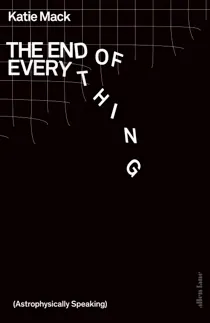
The end of the Universe may be a common feature in science fiction, but this one isn’t a crisis that can be averted by a team of superheroes. The Universe really will come to an end one way or another, and we have an idea how – five ideas, actually.
In The End of Everything (Astrophysically Speaking), astrophysicist Dr Katie Mack dives into these five possible apocalypses, from the Universe gradually fading out to the ‘quantum bubble of death’.
- Listen to our podcast with Katie Mack
- See more new books in our list of the best titles out this month
A History of the Universe in 21 Stars (and 3 imposters)
Giles Sparrow
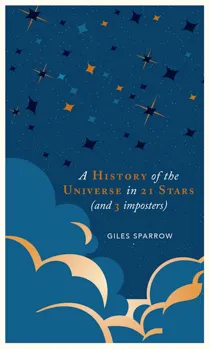
This accessible, illustrated guide to the cosmos is for both the new and the experienced stargazer.
Writer Giles Sparrow tells the stories of well-known 'celebrity' stars such as Proxima Centauri, Betelgeuse and our very own Sun, but also of those holding the sky's secrets; supernovae, quasars and dark matter. Through these 21 stars (and 3 imposters) he reveals the impact that astronomy has played on science's understanding of the past, present and future.
- Giles Sparrow explains the diagram that changed the Universe
Spacefarers: How Humans Will Settle the Moon, Mars, and Beyond
Christopher Wanjek
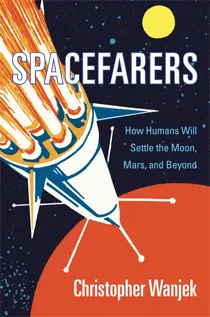
If the end of the world really is imminent, perhaps we should start looking for another one. The obvious choices are the Moon or Mars, but there are lots of other places in the Solar System we could try, each with their own problems and opportunities. We could try floating above Venus in balloon cities, or living in caves inside our very own asteroid.
Wanjek discusses the practicalities of moving away from the planet where we evolved. How might we cope with microgravity, or the lack of air pressure? And if we could terraform another planet… why not just stay on Earth?
Is There Anybody Out There?
Dara Ó Briain
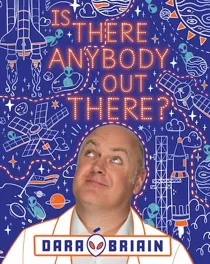
Looking for space books for kids? This illustrated and informative book is aimed at 9+ years.
The hilarious Dara Ó Briain offers scientific answers to questions such as: how did life begin? How was the Earth created? Do aliens exist?
The Art of Urban Astronomy: A Guide to Stargazing Wherever You Are
Abigail Beall
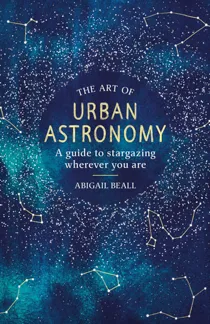
Stargazing does not have to be complicated, reveals Abigail Beall in this beautifully compact guide. It's not a hobby reserved for those who can afford a telescope, nor is it completely inaccessible to city-goers who spend most of their time under a light-polluted sky.
There are a few tricks and techniques that Beall shares, but ultimately, she advocates for the simple power – and wonder – in looking up.
The Last Stargazers: The Enduring Story of Astronomy’s Vanishing Explorers
Emily Levesque
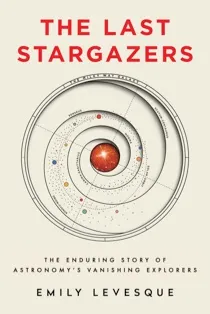
Astronomer Emily Levesque charts the history of the profession, following her colleagues across the globe and back in time. But now, we sit at the precipice of a new way of observing the stars – through robots, instead of our own eyes – and that has consequences across the sciences.
Levesque's writing is witty and honest, and asks us all to reconsider our relationship with the Universe.
- Read more about astronomy
SQUIRREL_TEXT_13075372
They Are Already Here:UFO Culture and Why We See Saucers
Sarah Scoles
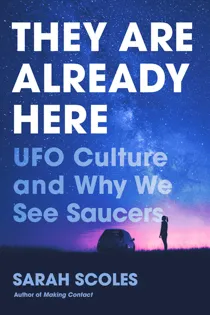
Why do so many people believe that aliens have visited Earth? Where does our depiction of 'flying saucers' come from? And what does UFO culture reveal about our psychology?
Science writer Sarah Scoles digs into the deep, sometimes dark, world of UFO conspiracies and stories for this fascinating book, mixing serious anecdotes from the community (told sceptically but sensitively) with real scientific research from across a range of disciplines.
- Read an extract from Sarah Coles' book:Conspiracies and FBI secrets: Why we love UFOs
Black Hole Survival Guide
Janna Levin
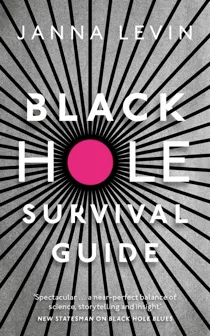
What would happen if you fell into a black hole? Janna Levin, a professor of physics and astronomy, reveals what her research has told us about these mysterious objects, and what we do and don't know about falling into one.
For fans of Jim Al-Khalili'sThe World According to Physics, this book is an accessible and engaging introduction to one of the Universe's most extraordinary phenomena.
I am a book. I am a portal to the Universe.
Stefanie Posavec and Miriam Quick
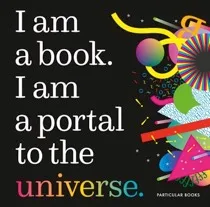
This book has 112 pages. It is a square, 20cm high and wide. It weighs 450g. It knows the secrets of the Universe. Open it up, dive into the data, and be prepared to want to share everything you learn with everyone around you.
The Zoologist’s Guide to the Galaxy: What animals on Earth reveal about aliens and ourselves
Dr Arik Kershenbaum
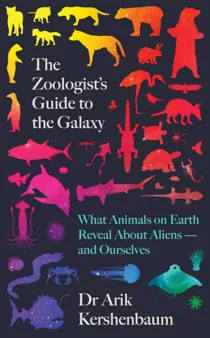
Scientists are increasingly confident that there is life elsewhere in the Universe. But what would that life look like?
Taking the growing body of information about other planets, applying the laws of biology, principles of chemistry, and his knowledge of Earth's history, Kershenbaum presents the possibilities for alien creatures with confidence.
Not Necessarily Rocket Science: A Beginner's Guide to Life in the Space Age
Kellie Gerardi
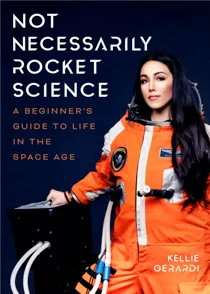
Straight from the pen of a scientist working with commercial spaceflight comes a memoir of getting into the air. Kellie Gerardi has worked with NASA, tested technology that would be sent to the International Space Station, and helped develop programmes for future space exploration.
But, it hasn't always been glamorous, says Gerardi. "Working my way up as young woman in a predominantly male industry often meant that I was the only woman in the meeting, at the dinner, on the stage, or in one case, at the entire company," she says on her website. That's why this book aims to make the space industry accessible to all, and it lands perfectly.
SQUIRREL_TEXT_13061819
The Human Cosmos:A Secret History of the Stars
Jo Marchant
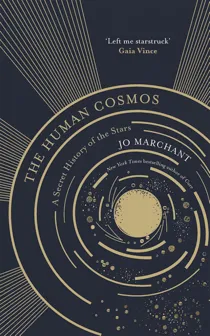
Humans have always been fascinated by the stars. But why are we so drawn to these celestial objects? Jo Marchant reveals this historical relationship through beautifully told stories, of gods and spirits, mathematicians and physicists.
Praised by great authors, including award-winning science journalist Gaia Vince,The Human Cosmosis not just a pleasure to read, it's one you'll want to share with everyone you know who is interested in astronomy.
- Read an extract fromThe Human Cosmos:Life on Mars: The story of meteorite ALH84001
The best books of all time
We reckon this is a fine selection of space and astronomy books, but if nothing here takes your fancy, take a look at a few more of our book recommendations:
- The best science books out this month
- The best maths books
- The best quiz collections and puzzle books
- The best wildlife books and nature writing
- 5 best physics books, according to Jim Al-Khalili
- AI: 5 of the best must-read artificial intelligence books
- 5 race science books you must read
- Science books for kids: 5 books for budding scientists
Looking for stargazing tips? Checkout our complete astronomy for beginners UK guide.

